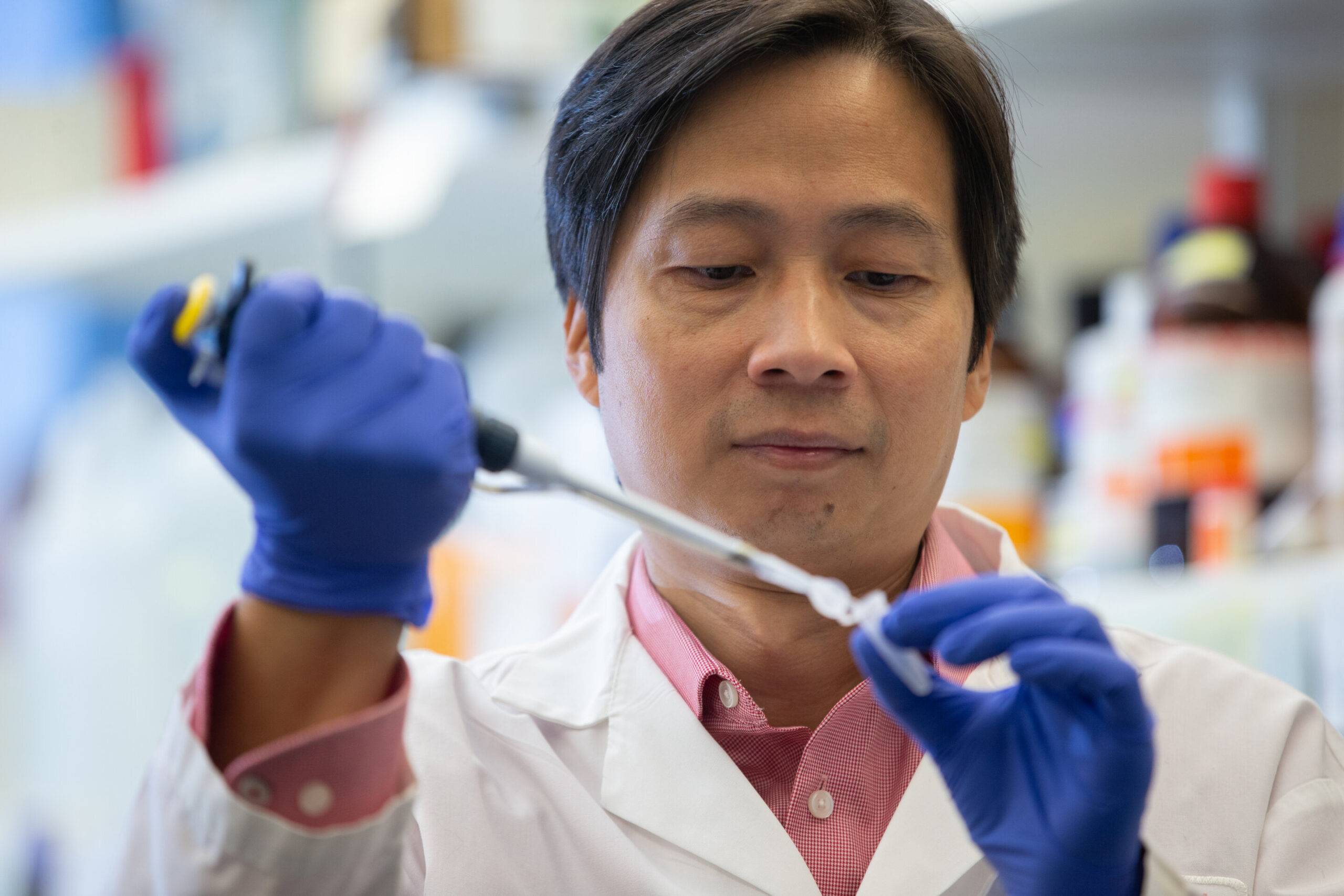Breast
-
Facebook
-
Twitter
-
Linkedin
Progress in genetic testing, such as BRCA1 and BRCA2 mutations, has transformed preventative strategies. Targeted therapies like HER2 inhibitors and advancements in hormone therapy have significantly improved survival rates.

I had breast cancer THREE times before I finally learnt that everything I thought I knew about diet was wrong.
Before my breast cancer diagnosis, my diet was… if not terrible, pretty close to it.

Breast cancer cure rates almost doubled in combo therapy trial
A phase 3 clinical trial has shown that adding a targeted immunotherapy drug to chemotherapy dramatically improved – almost doubled – the cure rate for patients with the most common kind of breast cancer. The findings suggest adopting a new treatment paradigm for the disease.

Chinese team says vaccine shows promise in treating breast cancer in mice
Nanovaccine achieved tumour inhibition rate of 89.3 per cent when tested on mice with aggressive form of the disease, study finds.

Drug candidate eliminates breast cancer tumors in mice in a single dose
Despite significant therapeutic advances, breast cancer remains a leading cause of cancer-related death in women. Treatment typically involves surgery and follow-up hormone therapy, but late effects of these treatments include osteoporosis, sexual dysfunction and blood clots.

Injectable supramolecular hydrogel shows promise for neoadjuvant immunotherapy of triple-negative breast cancer
The efficacy of immunotherapy against triple-negative breast cancer (TNBC) heavily relies on intratumoral infiltration of cytotoxic T lymphocytes (CTLs). Although neoadjuvant chemotherapy together with immunotherapy has been approved for advanced TNBC, its efficacy is still unsatisfactory, possibly due to systemic treatment-induced lymphatic system disorders and upregulation of additional immune checkpoints in the tumors.

New breast cancer treatment — and more headlines
Medical Watch Digest For Jan 22 New Breast Cancer Treatment A new drug candidate to help women with breast cancerThis drug works and it does not have the same side effects as current treatments acc…

Tool gives more accurate estimates of recurrence risk and individual chemotherapy benefit in node-positive breast cancer
A new statistical tool that combines multiple clinical and pathologic factors with a patient’s 21-gene Oncotype DX Breast Recurrence Score result provides more accurate estimates about that patient’s breast cancer prognosis and their potential benefit from chemotherapy than either the Recurrence Score result or clinical factors alone.

Francis Medical raises $80 million for device that treats prostate cancer – Minneapolis / St. Paul Business Journal
The Maple Grove-based company, spun off from the former NxThera Inc., plans to use proceeds from the round to fund a clinical trial of its Vanquish device in the treatment of prostate cancer.

AI increases chances to detect breast cancer, study finds
Researchers have indicated the use of AI in breast cancer screening increases the chances of detecting the disease. There have been claims that AI could Researchers have indicated the use of AI in breast cancer screening increases

FDA Approves Datroway for Pretreated Advanced Breast Cancer
In trial, datopotamab deruxtecan increased progression-free survival by 2 months

New hope for treating blood cancers using a breast cancer drug
Two recent studies from researchers at Washington University School of Medicine in St. Louis have identified a promising way to treat certain blood cancers using a drug originally developed for breast cancer. These findings could potentially change how doctors approach the treatment of these challenging diseases. The studies focused on a group of blood cancers […]

Study identifies potential microRNA target to overcome breast cancer resistance
A new University of Cincinnati Cancer Center study has identified a particular strand of microRNA as a promising new target for overcoming breast cancer treatment resistance and improving outcomes. The research was recently published in the journal Cancers.






